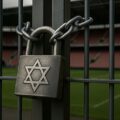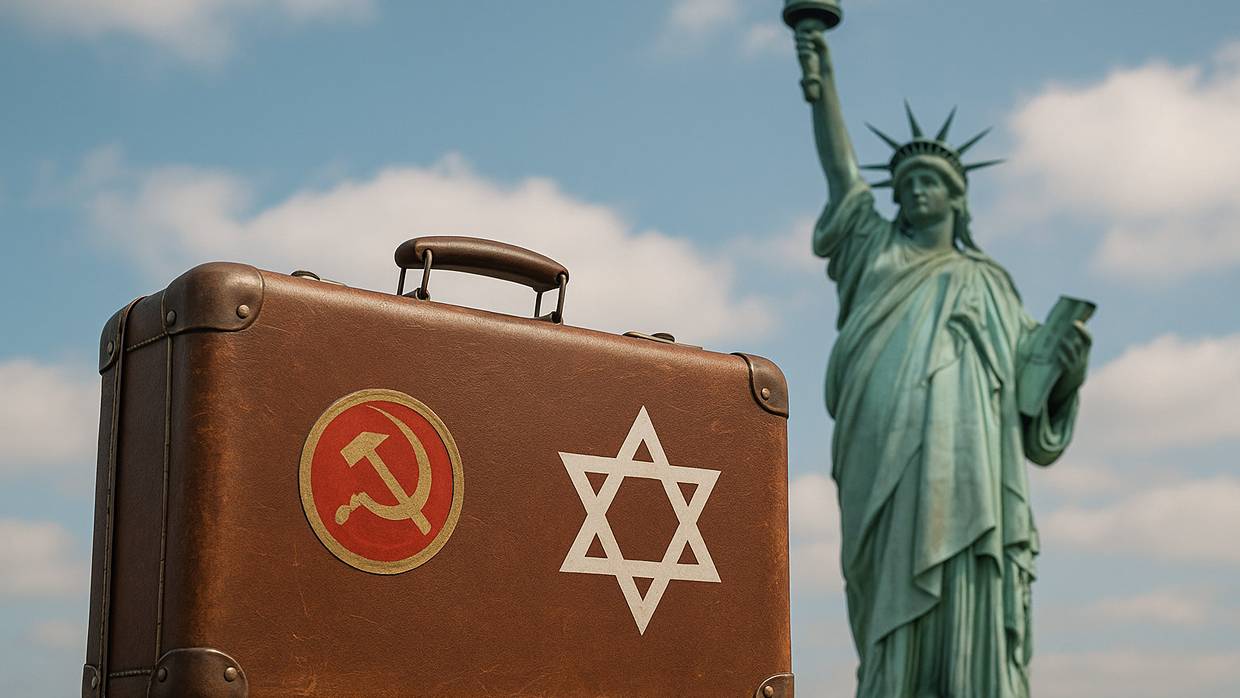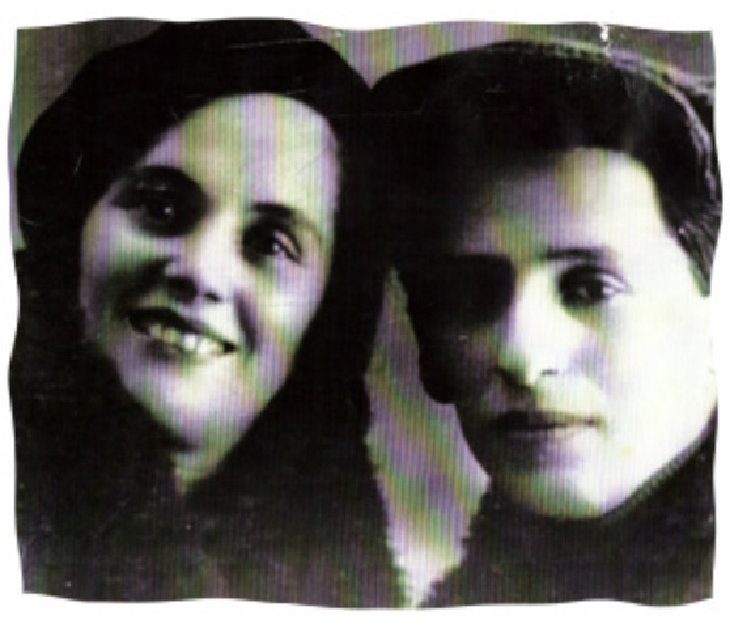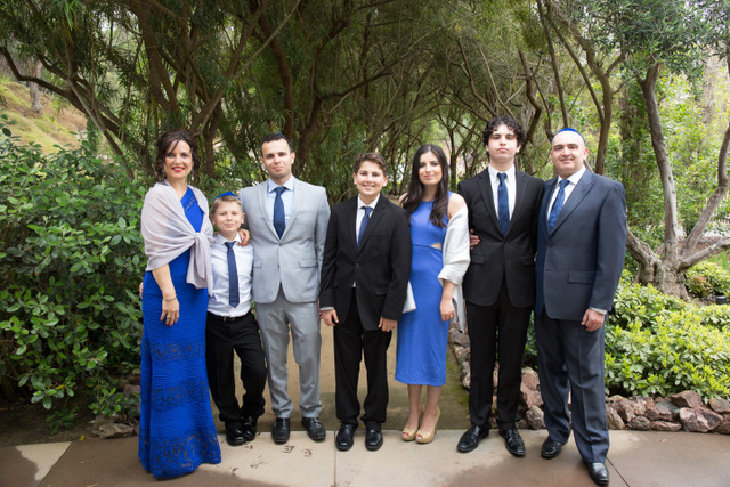 No Jews Allowed—Again
No Jews Allowed—Again


22 min read
7 min read
29 min read
6 min read
She escaped Soviet oppression, but now faces a new battle—keeping Judaism alive in her American-born children.
Back in Soviet Russia where I grew up, my grandma, who survived the Holocaust and lost her two precious little boys in the Minsk Ghetto, had to celebrate the Jewish holidays in secret. If the government discovered honey cake in the oven or gefilte fish in the fridge – attributes of her Jewish heritage – she would go to prison. And yet, she and my grandpa still set the table on Rosh Hashanah, gathered their family around it, and while dipping apples in honey, whispered prayers in Yiddish.
While getting ready for school the next morning, I was told not to tell anyone about anour secret Jewish celebration. I would become a pariah, banned from the Young Communist Pioneer Club. Judaism was a dark, hidden secret, yet listed in my Soviet passport as a nationality. A daft paradox.
Then in 1991, after the fall of the Soviet Union, the antisemitic grasp on the regime loosened, and Jews were allowed to leave. My family, among millions of others, was able to escape to the safety of America, freefalling into the freedom of being ourselves – as Jews.
 My grandparents
My grandparents
We, especially those who came with young children, have been busy surviving, learning English, applying for jobs, establishing roots – becoming worthy citizens of our new world. And while doing so, many of us have neglected the Jewish aspect of ourselves, which apparently, as I discovered later, is a fundamental core within each of us. Yet, to so many, Judaism has become a distant echo of the past, an inconvenient non-priority.
Until...
For me, the turning point was when my grandmother passed away. One of my parents’ neighbors somehow knew that we were Jews and recommended a rabbi from a local temple to conduct a Jewish funeral.
Standing by my beloved grandma’s gaping grave, lost in grief and despair, I heard the rabbi singing prayers in a language I had never heard before: Hebrew. Suddenly, there was warmth in my chest followed by feelings of comfort and ease. This unexpected soothing – a glimpse of peace – was both welcoming and confusing at the same time. What was that about? According to the rabbi, that was my Jewish soul, neshamah, activated by his prayers, healing my broken heart.
I’ll take it.
Things changed after that and I became more Jewish. I sent my kids to Sunday Hebrew school, and then, years later, to a Jewish day school. My husband and I started attending classes at our local temple, learning about the spiritual aspect of our heritage, healing the ache of disconnection from our Jewish tribe imposed by the Soviet regime. And then, for our 25th wedding anniversary, surrounded by family and friends in front of our five children, we had the religious wedding ceremony under our very own chuppah.
So now, years later, many of us Jewish refugees who lost our parents or grandparents who had experienced the horrors of pogroms and the Holocaust, have felt the tremendous joy of picking up the pieces and celebrating our lives in our new post-war homelands: Israel and America.
Do we owe them continuing their legacy?
My grandma used to say that we avenge those who vanished at the hands of evil by thriving in our lives today, loudly and unapologetically. But can we truly be happy if our pursuit of happiness is only about prestigious college degrees and flashy cars? Those things are great, but life feels shallow and flimsy if we rely only on our material possessions for happiness. Judaism supplies this essence, a sense of belonging, a connection to something bigger, broader, wiser than us; a solid anchor in the turbulent sea of life.
So as the years pass and we step into the role of matriarch or patriarch of our own families, the honor and responsibility fall on our shoulders to infuse our children with the light and love of Judaism – to gift them with its lasting essence. Especially in the post-October 7th world, when the world of every Jew was flipped upside down. We felt it, as if connected by some sacred web of ancestral DNA, making our hearts ache and our souls cry.

Today, kids proclaim: "It’s my life, and I get to do whatever I want." I could not agree more. But who are we, really, without our families, without our roots? Are we just drifters? It's our Jewish values and traditions that keep us grounded, connecting us to our tribe’s invisible network of safety. It’s our responsibility to show through small acts of Jewishness that we care.
So I decide to take a stand on the eve of Rosh Hashanah, the Jewish New Year, when my kids tell me that they’re all too busy to get together to celebrate the Jewish holiday as a family. I hear a bunch of excuses – meetings, sports, tests – and I get mad and hurt.
When something is important, we fight for it.
I swing the family room door open. Three heads are focused intently on a basketball game. “Excuse me, please,” I say, reaching for the remote control and pausing the TV. Three pairs of eyes are on me, displeased.
“If your great-grandma could celebrate religious holidays, risking her freedom and her life, why can’t you commit to treating your Jewish heritage as a priority for just a few times a year?" I begin my rampage. “And since when does freedom of choice evoke grunts of ignorance and ungratefulness? You are the kids of Jewish refugees and the descendants of Holocaust survivors. That should mean something to you.”
I look at my 23-year-old son, who is in the midst of signing an important real estate deal. “Your money comes from God, so it’s only appropriate to acknowledge Him during High Holidays,” I make my case.
Then, I turn to my 20-year-old, who has an important test on the night of Rosh Hashanah. “Reschedule the test.” I make it simple for him.
“When you have integrity within yourself and show respect for who you are and your values, others honor and respect you.”
Last is my 16-year-old, who tells me that his coach will hate him for missing his lacrosse practice and bar him from playing future games. “Tell your coach the truth,” I command, “that I am forcing you to stay home with your family and celebrate the Jewish new year. Text him now!”
With three heads nodding "okay," most likely to get rid of me and watch the game, I leave the room.
Minutes later my youngest rushes into my bedroom. “Mom!” he shows me his phone. “See what my coach wrote: "Shana Tova. Your mother is right. Enjoy time with your family.”
Every cell in my body applauds in celebration. I look straight at my son and say, “When you have integrity within yourself and show respect for who you are and your values, others honor and respect you.”
The next day, as my family gathers around the festive Rosh Hashanah table, dipping apples in honey for the sweet new year, I know they received a lesson that would make my grandparents proud.
